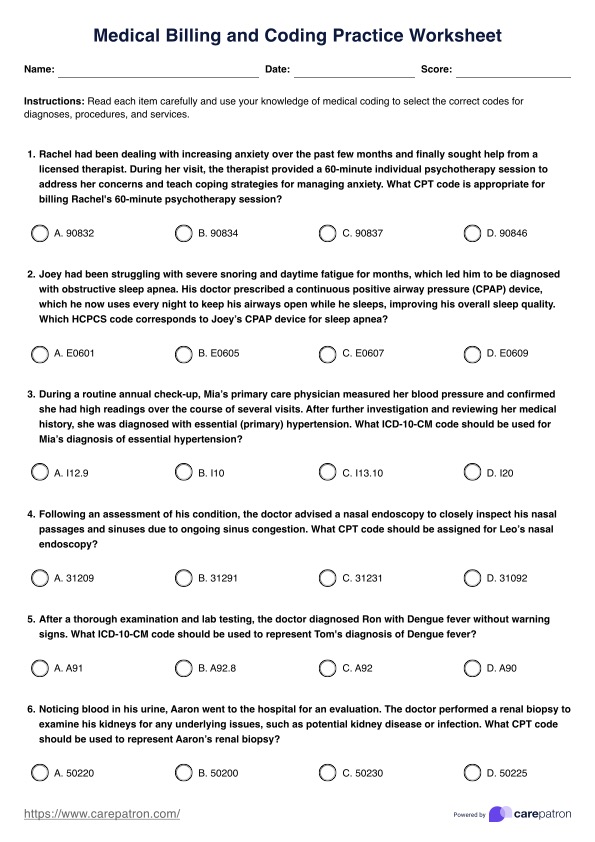The hardest part of medical coding is ensuring accuracy amidst complex codes and ever-changing healthcare regulations, which requires attention to detail and up-to-date knowledge.

Medical Billing and Coding Practice Worksheets
Enhance medical billing and coding skills with our practice worksheet. Get this for free!
Medical Billing and Coding Practice Worksheets Template
Commonly asked questions
The basic steps of medical coding involve reviewing a patient's medical record, identifying relevant diagnoses and procedures, and assigning the correct codes according to medical coding guidelines.
The best medical coding certification depends on your career goals and the specific area of healthcare coding you want to pursue. The Certified Professional Coder (CPC) certification from the American Academy of Professional Coders (AAPC) is widely recognized and ideal for those seeking general coding expertise.
EHR and practice management software
Get started for free
*No credit card required
Free
$0/usd
Unlimited clients
Telehealth
1GB of storage
Client portal text
Automated billing and online payments











